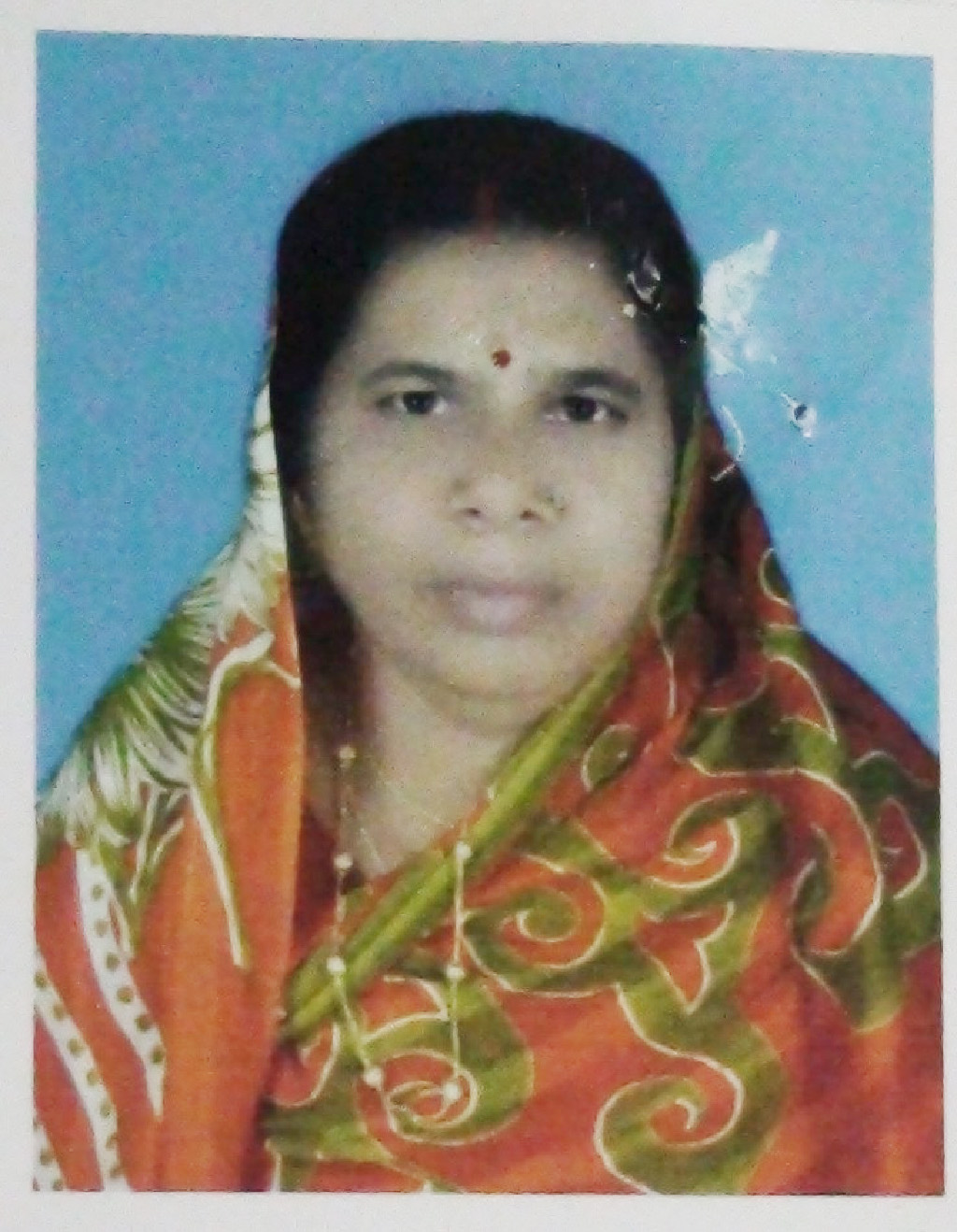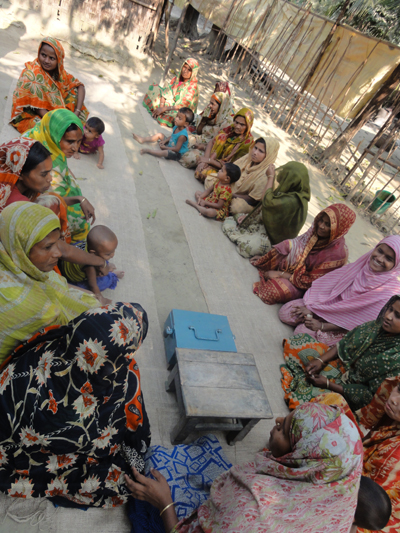Shormala Adhikari’s 32 years journey with Tarango as a handicrafts producer

The following case study highlights Shormola Adhikari’s 32 years journey with Tarango as a handicrafts producer. Shormola resides in Kadambari itself a short boat ride away from the project office.
Shormolla’s younger son was just 1 year old when she started working in handicrafts. ‘In those times the floods used to destroy everything, houses, cows, goats, and fields. Nothing would be left. I used to have to travel long distances to get to the office to take orders. Everybody would talk about it. Why is she walking around?’ Shormolla ignored all criticisms as she knew she had to generate an income and with the support of her in laws and husband has never looked back.
26 years later Shormolla is a proud grandmother to a one year old baby girl and has educated both her sons till the age of 18. Both her sons and one daughter in law work on a government funded census project in a neighbouring town a source of great pride for both Shormolla and her husband Nibash who speaks with great pride about his wife’s achievements, ‘This year so far she has invested 50,000BDT in house repairs.’ When asked about his views on Shormolla’s achievements, Nibash is matter of fact, ‘Of course I’m happy. She wouldn’t have been able to achieve any of this without my blessing. I support her every step of the way.’ Significantly, the family have been debt free for almost five years and own approximately 6 bigah’s of land and their own tube well too.
There is little doubt that Shormolla’s phenomenal journey working in handicrafts has accorded her immense financial stability and respect in the local community and beyond. Shormolla is one of the chief trainers for Tarango’s handicrafts programme and has travelled far and wide across Bangladesh sometimes for up to periods of 2 months to work as a trainer in new areas Tarango is expanding into. ‘I’ve been to Comilla, Pabna, Gazipur, Lalmonir Hat and Dinajpur. I’ve met women who could not even count money because they have never had any of their own. Their parents nor their husbands ever gave them any.’ Even now women wanting to learn how make handicrafts approach Shormolla and she tries to assist them by having them work in her courtyard first to learn the basics. In fact, a lot of the women at the project office started off their own journey with Shormolla before joining Tarango.
‘We women of Kadambari welcome anyone who wants to learn both men or women. In fact sometimes men want to see what we are doing so we invite them in to look. We always tells them that women from Kadambari can speak to men without any problems.’ Shormolla also works in the project office as and when she can and is quick to tell us that she enjoys working there with all the other women. It gives her a sense of camaraderie and it feels better to work with other people than on her own. Is there anything left for Shormolla to achieve? ‘I have one more wish. I want to go abroad and see where all these things I make go. Who uses them? I want to meet them very much.’



